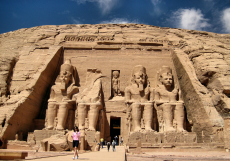
West Africa was therefore an area in which I believe Britain had an interest in largely due to economic motives. Raw materials were another factor of this. In the Niger region was an important source of palm oil, used in soap, industrial lubrication and tinplate industries. This made palm oil an efficient material for to trade because it had multiple applications meaning that it was in high demand and as Britain was at its industrial peak at this time, many industrial entrepreneurs would need this raw material. This is an economic gain because trading companies such as the Royal Niger Company would be able to trade this with British industries and then British industries would use it to increase production. This system means that all parties will have gained a profit that they would have lost had companies not obtained influence in the area and exploited the markets.
The situation of East Africa was very similar. The most immediate major factor in obtaining influence in this area was that the island of Zanzibar imported significant amounts of manufactured goods from Britain and India. The value of its import and export trade was approximately £2 million, an economic stake well worth defending in order to maintain. Factors such as this made trade a priority in order to achieve an economic gain. Because of the variety of raw materials such as ivory and leather it had huge potential for this and could help feed the British industrial revolution. However Britain had another major motive; to defend the area from other European countries when Otto von Bismarck announced the creation of a German protectorate over East Germany. British traders felt a need to gain the upper hand because it threatened their monopoly over the markets. For the government this created a problem for their policy of informal empire and therefore they reached a diplomatic agreement to split East Africa between Britain and Germany.
However, the divide gave Germany greater economic opportunities in comparison. Britain needed to obtain more influence in order to fulfil its economic motives. Sir William MacKinnon therefore created the British East Africa Company and was able to obtain influence over the markets because of backing from major British entrepreneurs. British businessmen were working together in order to help dominate the markets once more, showing that their economic motives were their main priority in order to meet their own ends. From this they counter-balanced the diplomatic agreement meaning that Britain could expand potential economic opportunities in the area. Therefore the motive for defence-like in West Africa-was to maintain an economic advantage , so economic interests were still the main extent to why Britain wanted influence in East Africa.
However although the large businesses of Britain saw economic gain as their primary motive the British government throughout these events seemed to one that mainly consisted of laissez-faire. I believe that because of the tension between Germany and Britain in the area the government’s main objective was to stop a war breaking out between them. Lord Salisbury was reluctant to establish formal control in the region and kept a diplomatic approach. This shows that his major motive was to maintain the political balance of power back in Europe not just to serve economic gain.
Image: By Francisco Anzola (Abu Simbel Main Temple) [CC BY 2.0 (http://creativecommons.org/licenses/by/2.0)], via Wikimedia Commons

0 Comment:
Be the first one to comment on this article.